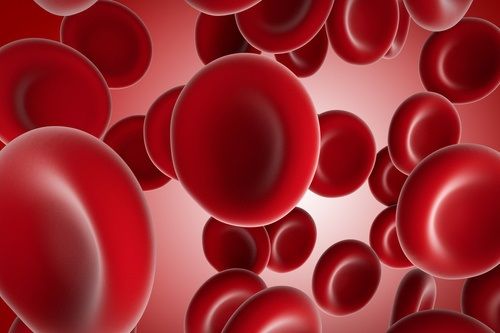Article
Emicizumab Shows Strong Results in Phase III Hemophilia Trials
Author(s):
The drug met primary and secondary endpoints in both HAVEN 1 and HAVEN 2.

Emicizumab prophylaxis is gaining traction in phase 3 HAVEN 1 and HAVEN 2 trials as a treatment for children with hemophilia A and inhibitors to factor VIII.
Genentech, the biotech corporation and Roche Group subsidiary that manufactures emicizumab, released positive preliminary results from the HAVEN 1 study in April. The primary phase 3 analysis of HAVEN 1 and preliminary results from HAVEN 2 were positive as well, with both showing a substantial and clinically meaningful reduction in the number of bleeds, according to a company statement.
The HAVEN 1 study compared emicizumab prophylaxis with on-demand and prophylactic use of bypassing agents in adults and adolescents with hemophilia A with inhibitors. The study met its primary endpoint — the number of treated bleeds. Results showed a statistically and clinically meaningful reduction in in bleed rate of 87% with emicizumab prophylaxis compared to on-demand treatment with bypassing agents.
After a median observation time of 31 weeks, about 63% of patients receiving emicizumab experienced no treated bleeds compared to about 6% of patients who received on-demand bypassing agents.
Bleeds were consistently reduced compared to on-demand bypassing agents across all secondary endpoints as well, which included all bleeds, treated spontaneous bleeds, treated joint bleeds, and treated target joint bleeds.
Treated patients also showed a statistically significant and clinically meaningful improvement in health-related quality of life measured at 25 weeks, according to Genentech. This included Hem-A-QoL physical health domain and total score and EQ-5D-5L visual analog scale and total utility score.
Genentech added that interim results from the HAVEN 2 study in children younger than 12 with hemophilia A with inhibitors were consistent with the positive results from HAVEN 1. Following a median observation time of 12 weeks, only one of the 19 children receiving emicizumab reported a treated bleed, and there were no reported joint or muscle bleeds.
All patients experienced a 100% reduction in treated bleeds following treatment with emicizumab — this included 7 children who had received prior bypassing agent prophylaxis and one who had received prior on-demand bypassing agents.
The data also indicate that the same dose of emicizumab is appropriate for children as for adults and adolescents, based on the levels of emicizumab in the blood of the children compared with the level of emicizumab in the blood of adults and adolescents.
Adverse events in patients who took emicizumab prophylaxis included injection site reactions, headache, fatigue, upper respiratory tract infection and arthralgia. Serious adverse events of thromboembolic events and thrombotic microangiopathy occurred in 2 patients and 3 patients respectively.
HAVEN 1 is a randomized, multicenter, open-label phase 3 study evaluating the efficacy, safety and pharmacokinetics of emicizumab prophylaxis compared to on-demand bypassing agents in adults and adolescents with hemophilia A with inhibitors to factor VIII. The study included 109 patients over the age of 12 with this condition who were previously treated with on-demand or prophylactic bypassing agents.
HAVEN 2 is a single-arm, multicenter, open-label, phase 3 study evaluating the efficacy, safety and pharmacokinetics of once-weekly subcutaneous administration of emicizumab. The interim analysis after a median of 12 weeks of treatment included 19 children younger than 12 with hemophilia A with inhibitors to factor VIII, who require treatment with bypassing agents.





